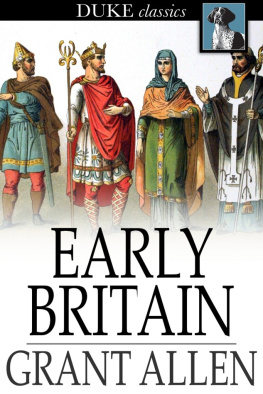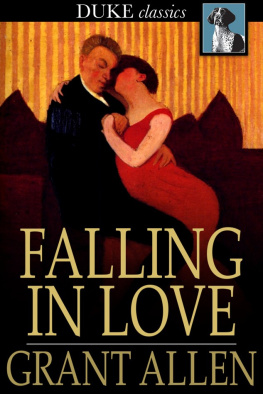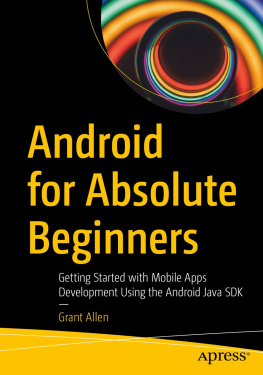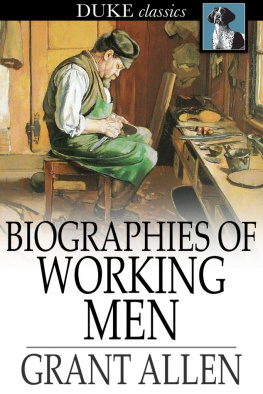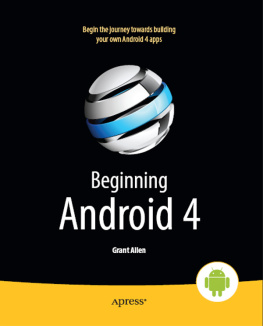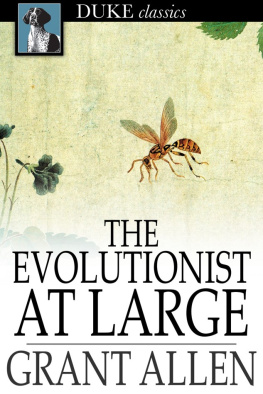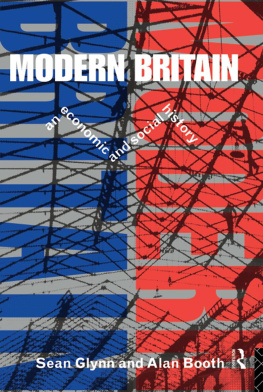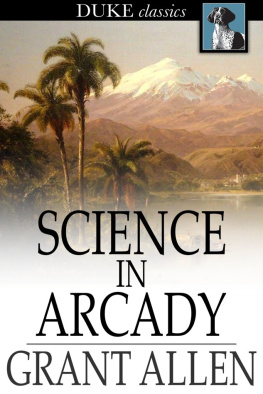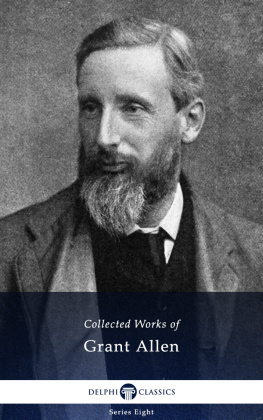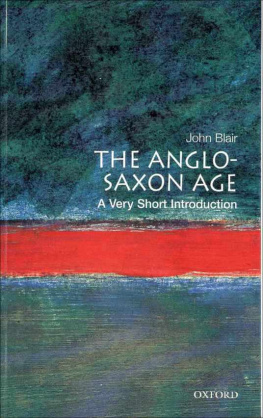Grant Allen - Early Britain: Anglo-Saxon Britain
Here you can read online Grant Allen - Early Britain: Anglo-Saxon Britain full text of the book (entire story) in english for free. Download pdf and epub, get meaning, cover and reviews about this ebook. year: 2014, publisher: Duke Classics, genre: Religion. Description of the work, (preface) as well as reviews are available. Best literature library LitArk.com created for fans of good reading and offers a wide selection of genres:
Romance novel
Science fiction
Adventure
Detective
Science
History
Home and family
Prose
Art
Politics
Computer
Non-fiction
Religion
Business
Children
Humor
Choose a favorite category and find really read worthwhile books. Enjoy immersion in the world of imagination, feel the emotions of the characters or learn something new for yourself, make an fascinating discovery.
- Book:Early Britain: Anglo-Saxon Britain
- Author:
- Publisher:Duke Classics
- Genre:
- Year:2014
- Rating:3 / 5
- Favourites:Add to favourites
- Your mark:
- 60
- 1
- 2
- 3
- 4
- 5
Early Britain: Anglo-Saxon Britain: summary, description and annotation
We offer to read an annotation, description, summary or preface (depends on what the author of the book "Early Britain: Anglo-Saxon Britain" wrote himself). If you haven't found the necessary information about the book — write in the comments, we will try to find it.
Though he got his start in the field of higher education, Grant Allen later found his niche as a writer of popular fiction and nonfiction. Allens series of history texts presents the highlights of important periods, along with key aspects of social, political and economic context, in an engaging narrative style that will keep readers hooked.
Early Britain: Anglo-Saxon Britain — read online for free the complete book (whole text) full work
Below is the text of the book, divided by pages. System saving the place of the last page read, allows you to conveniently read the book "Early Britain: Anglo-Saxon Britain" online for free, without having to search again every time where you left off. Put a bookmark, and you can go to the page where you finished reading at any time.
Font size:
Interval:
Bookmark:

Anglo-Saxon Britain
First published in 1881
ISBN 978-1-63421-146-8
Duke Classics
2014 Duke Classics and its licensors. All rights reserved.
While every effort has been used to ensure the accuracy and reliability of the information contained in this edition, Duke Classics does not assume liability or responsibility for any errors or omissions in this book. Duke Classics does not accept responsibility for loss suffered as a result of reliance upon the accuracy or currency of information contained in this book.
This little book is an attempt to give a brief sketch of Britain underthe early English conquerors, rather from the social than from thepolitical point of view. For that purpose not much has been said aboutthe doings of kings and statesmen; but attention has been mainlydirected towards the less obvious evidence afforded us by existingmonuments as to the life and mode of thought of the people themselves.The principal object throughout has been to estimate the importance ofthose elements in modern British life which are chiefly due to purelyEnglish or Low-Dutch influences.
The original authorities most largely consulted have been, first andabove all, the "English Chronicle," and to an almost equal extent,Bda's "Ecclesiastical History." These have been supplemented, wherenecessary, by Florence of Worcester and the other Latin writers of laterdate. I have not thought it needful, however, to repeat any of thegossiping stories from William of Malmesbury, Henry of Huntingdon, andtheir compeers, which make up the bulk of our early history as told inmost modern books. Still less have I paid any attention to the romancesof Geoffrey of Monmouth. Gildas, Nennius, and the other Welsh tractshave been sparingly employed, and always with a reference by name. Asserhas been used with caution, where his information seems to be reallycontemporary. I have also derived some occasional hints from the oldBritish bards, from Beowulf, from the laws, and from the charters inthe "Codex Diplomaticus." These written documents have been helped outby some personal study of the actual early English relics preserved invarious museums, and by the indirect evidence of local nomenclature.
Among modern books, I owe my acknowledgments in the first and highestdegree to Dr. E.A. Freeman, from whose great and just authority,however, I have occasionally ventured to differ in some minor matters.Next, my acknowledgments are due to Canon Stubbs, to Mr. Kemble, and toMr. J.R. Green. Dr. Guest's valuable papers in the Transactions of theArchological Institute have supplied many useful suggestions. ToLappenberg and Sir Francis Palgrave I am also indebted for variousdetails. Professor Rolleston's contributions to "Archologia," as wellas his Appendix to Canon Greenwell's "British Barrows," have beenconsulted for anthropological and antiquarian points; on which alsoProfessor Huxley and Mr. Akerman have published useful papers. ProfessorBoyd Dawkins's work on "Early Man in Britain," as well as the writingsof Worsaae and Steenstrup have helped in elucidating the condition ofthe English at the date of the Conquest. Nor must I forget the aidderived from Mr. Isaac Taylor's "Words and Places," from ProfessorHenry Morley's "English Literature," and from Messrs. Haddan and Stubbs'"Councils." To Mr. Gomme, Mr. E.B. Tylor, Mr. Sweet, Mr. James Collier,Dr. H. Leo, and perhaps others, I am under various obligations; and ifany acknowledgments have been overlooked, I trust the injured personwill forgive me when I have had already to quote so many authorities forso small a book. The popular character of the work renders itundesirable to load the pages with footnotes of reference; and scholarswill generally see for themselves the source of the information given inthe text.
Personally, my thanks are due to my friend, Mr. York Powell, for muchvaluable aid and assistance, and to the Rev. E. McClure, one of theSociety's secretaries, for his kind revision of the volume in proof, andfor several suggestions of which I have gladly availed myself.
As various early English names and phrases occur throughout the book, itwill be best, perhaps, to say a few words about their pronunciationhere, rather than to leave over that subject to the chapter on theAnglo-Saxon language, near the close of the work. A few notes on thismatter are therefore appended below.
The simple vowels, as a rule, have their continental pronunciation,approximately thus: as in father, as in ask; as inthere, as in men; as in marine, as fit; asin note, as in not; as in brute, as in full; as in grn (German), y as in hbsch (German). The quantity ofthe vowels is not marked in this work. is not a diphthong, but asimple vowel sound, the same as our own short a in man, that, &c.Ea is pronounced like ya. C is always hard, like k; and g isalso always hard, as in begin: they must never be pronounced likes or j. The other consonants have the same values as in modernEnglish. No vowel or consonant is ever mute. Hence we get the followingapproximate pronunciations: lfred and thelred, as if written Alfredand Athelred; thelstan and Dunstan, as Athelstahn and Doonstahn;Eadwine and Oswine, nearly as Yahd-weena and Ose-weena; Wulfsige andSigeberht, as Wolf-seeg-a and Seeg-a-bayrt; Ceolred and Cynewulf, asKeole-red and Kne-wolf. These approximations look a little absurd whenwritten down in the only modern phonetic equivalents; but that is thefault of our own existing spelling, not of the early English namesthemselves.
G.A.
At a period earlier than the dawn of written history there livedsomewhere among the great table-lands and plains of Central Asia a raceknown to us only by the uncertain name of Aryans. These Aryans were afair-skinned and well-built people, long past the stage of aboriginalsavagery, and possessed of a considerable degree of primitive culture.Though mainly pastoral in habit, they were acquainted with tillage, andthey grew for themselves at least one kind of cereal grain. They spoke alanguage whose existence and nature we infer from the remnants of itwhich survive in the tongues of their descendants, and from theseremnants we are able to judge, in some measure, of their civilisationand their modes of thought. The indications thus preserved for us showthe Aryans to have been a simple and fierce community of early warriors,farmers, and shepherds, still in a partially nomad condition, livingunder a patriarchal rule, originally ignorant of all metals save gold,but possessing weapons and implements of stone, and worshipping astheir chief god the open heaven. We must not regard them as an idyllicand peaceable people: on the contrary, they were the fiercest and mostconquering tribe ever known. In mental power and in plasticity ofmanners, however, they probably rose far superior to any race thenliving, except only the Semitic nations of the Mediterranean coast.
From the common Central Asian home, colonies of warlike Aryans graduallydispersed themselves, still in the pre-historic period, under pressureof population or hostile invasion, over many districts of Europe andAsia. Some of them moved southward, across the passes of Afghanistan,and occupied the fertile plains of the Indus and the Ganges, where theybecame the ancestors of the Brahmans and other modern high-casteHindoos. The language which they took with them to their new settlementsbeyond the Himalayas was the Sanskrit, which still remains to this daythe nearest of all dialects that we now possess to the primitive Aryanspeech. From it are derived the chief modern tongues of northern India,from the Vindhyas to the Hindu Kush. Other Aryan tribes settled in themountain districts west of Hindustan; and yet others found themselves ahome in the hills of Iran or Persia, where they still preserve an allieddialect of the ancient mother tongue.
Font size:
Interval:
Bookmark:
Similar books «Early Britain: Anglo-Saxon Britain»
Look at similar books to Early Britain: Anglo-Saxon Britain. We have selected literature similar in name and meaning in the hope of providing readers with more options to find new, interesting, not yet read works.
Discussion, reviews of the book Early Britain: Anglo-Saxon Britain and just readers' own opinions. Leave your comments, write what you think about the work, its meaning or the main characters. Specify what exactly you liked and what you didn't like, and why you think so.

